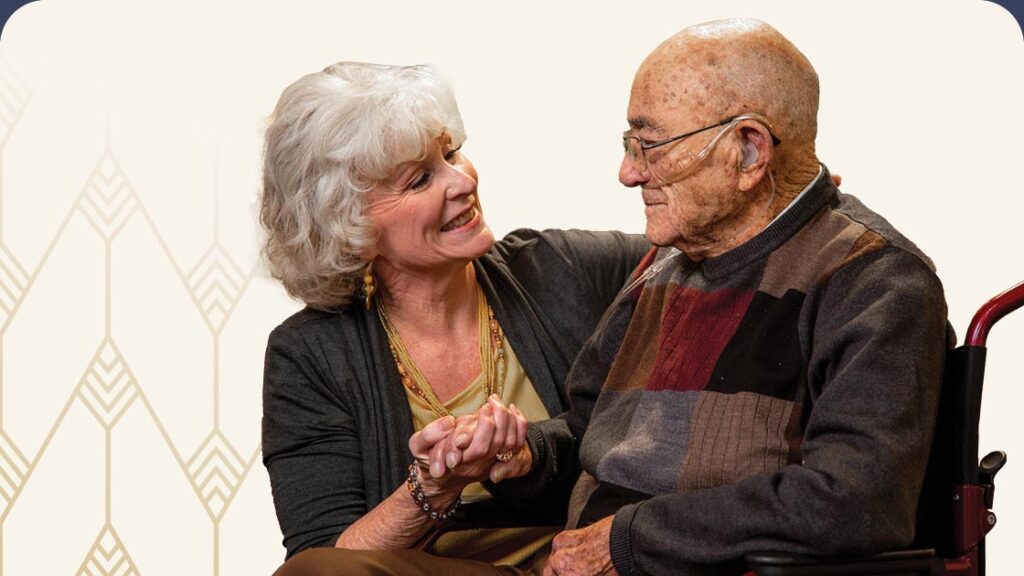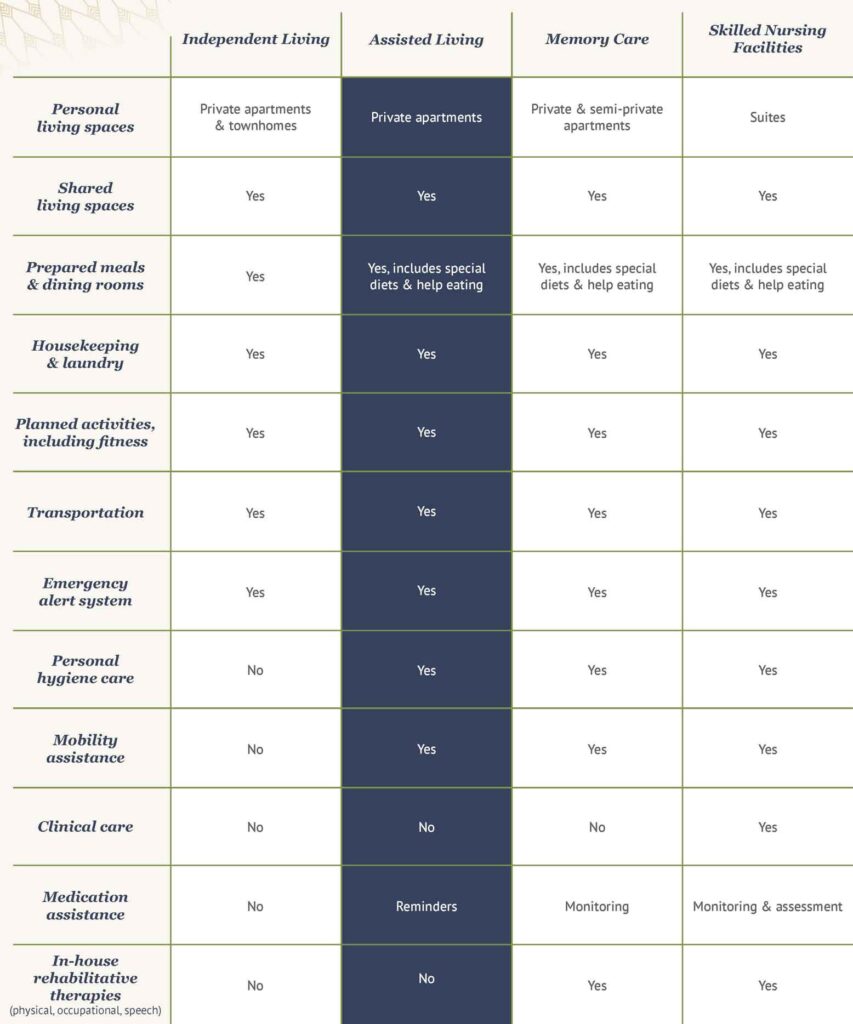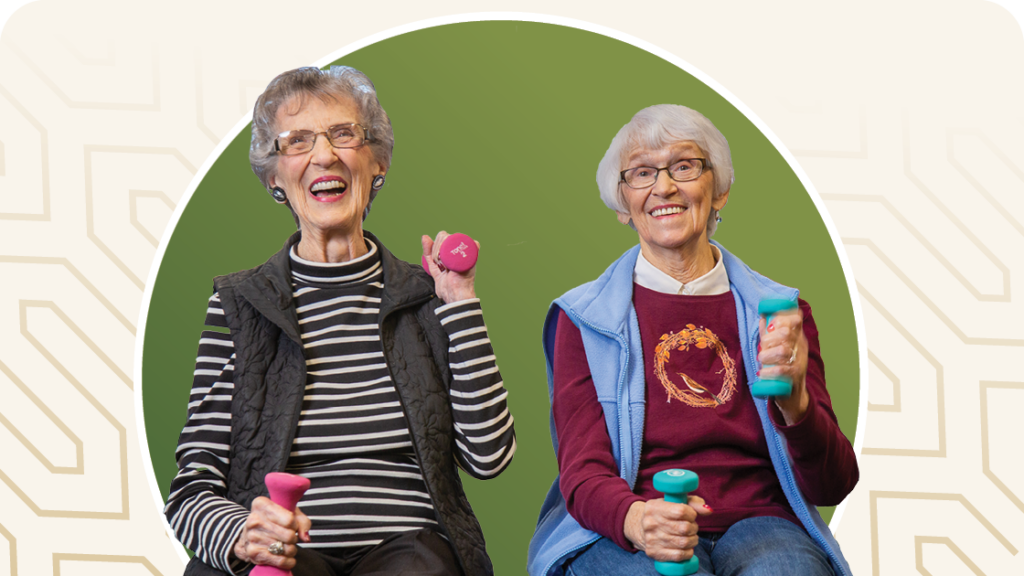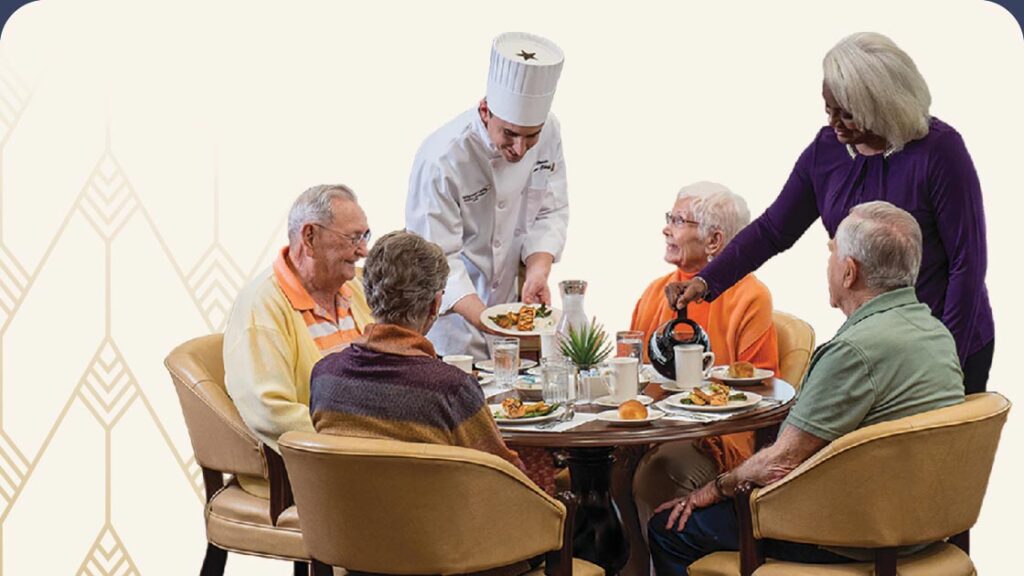More results...
Sep 14, 2023|Assisted Living

As adults get older, it’s important to acknowledge and address changing health care needs. Assisted living is a popular senior care option that strikes the perfect balance between independence and support. However, families often delay making a decision to move until a crisis occurs. As a result, people are forced to make decisions under pressure.
If you’ve witnessed yourself or a loved one face physical hurdles with day-to-day tasks, like cooking, cleaning, or even bathing, it might be time for a positive transformation. Start exploring residential assisted living, and you’ll discover that older adults in these residences can still enjoy an engaging, active lifestyle.
In this comprehensive blog, we will delve into the essence of assisted living, exploring the diverse range of services it offers and understanding the financial considerations involved. Armed with this knowledge, you can make a well-informed decision that ensures you or your loved one thrive in a nurturing and compassionate environment.
Statement of Fairness: Considering senior living options for yourself or a loved one? We’re here to help at every step. And even though we specialize in Independent and Assisted Living communities, our goal is for YOU to find your best path to gracious retirement living, and part of how we achieve that is by providing reliable information on all types of senior living, not just the ones we offer. When our offerings serve as useful illustrations to a specific topic, you can find that information in the attached sidebars.
Assisted living is a specialized residential option that bridges the gap between independent living and round-the-clock care. It is designed for seniors who require some level of assistance with daily activities, such as bathing, dressing and medication management. These communities provide a safe and supportive environment, ensuring that residents receive the personalized care they need while preserving their dignity and autonomy. Residents are encouraged to live as independently as possible and participate in engaging social and physical activities.
If you haven’t visited an assisted living community before, you may be in for a pleasant surprise. Shared living spaces feature places to socialize, dining rooms, libraries, gardens, cafés, beauty salons and more. Round-the-clock trained staff are on hand to care for their residents’ physical and emotional needs.
Four out of five older adults endure at least one chronic condition, such as diabetes, high blood pressure, heart disease or depression. Almost 60% of them will need some form of long-term care. Although the average assisted living resident is 85 or older, there’s no magic number.
Because people are changing their views about senior living, older adults are starting to enter at a younger age. Gone are the days when independent living and assisted living residences were perceived as dreary, last-resort options for older adults.
Today, these vibrant communities have become hubs of vibrant activity, fostering friendships, promoting well-being and offering a remarkably high quality of life. From resort-style residences to cozy, intimate homes, the array of choices caters to diverse preferences, ensuring older adults find the perfect setting that aligns with their lifestyle and needs.
The gracious retirement lifestyle at Somerset Assisted Living focuses not only on personal care but on caring relationships too. Included in the monthly rent, our residents receive:

Assisted living senior housing is ideal for older adults and individuals who:
Both independent living and assisted living retirement communities are dedicated to enhancing the quality of life for older adults, offering a maintenance-free lifestyle along with a range of planned activities and communal dining experiences.
While independent living communities feature safety modifications such as nonslip flooring, grab bars and wide hallways, they are specifically designed for older adults who maintain their mobility and independence in day-to-day self-care routines. It’s important to note that independent living does not provide staff qualified to oversee residents’ medications.
Memory care residences provide a haven of safety and dedicated support for seniors facing challenges such as dementia, Alzheimer’s and other cognitive difficulties. Highly trained staff diligently monitor medications and extend compassionate personal assistance, ensuring residents’ well-being. Through comforting routines and thoughtfully crafted activities, these residences offer a structured and enriching daily living experience.
In response to the growing demand for specialized care, numerous assisted living communities have embraced the concept of memory care and incorporated designated spaces to cater specifically to the unique needs of residents facing memory-related conditions.
Currently, approximately 1.3 million people reside in skilled nursing communities across the United States. For individuals in need of comprehensive, round-the-clock care, skilled nursing facilities employ a team of dedicated professional and technical staff to meet those needs. This highly trained team includes physicians, registered nurses and licensed practical nurses who work tirelessly to monitor residents’ health conditions and administer rehabilitative therapies. For short-term care needs, Medicare Part A can often cover the associated costs.
In contrast, assisted living communities do not offer clinical care services. As a result, these communities place a stronger emphasis on providing a variety of social activities to promote engagement and foster a cozy atmosphere for residents.

The benefits of assisted living include the combination of compassionate care that helps individuals with activities of daily living, paired with a lifestyle full of social activities, wellness programs and community outings designed to help seniors thrive. These mental and physical benefits can help you and your loved ones look forward to your next chapter. Get ready – it’s going to be a good one.

1. Personalized care: Assisted living provides personalized assistance with activities of daily living, such as bathing, dressing and medication management. This level of support ensures that residents receive the help they need to maintain their physical health and hygiene.
2. Nutritious meals: Assisted living communities typically offer well-balanced, chef-prepared meals tailored to residents’ dietary needs and preferences. Proper nutrition plays a vital role in maintaining physical health and vitality.

3. Medication management: Trained staff help residents manage their medications, ensuring that they take the right doses at the correct times. This reduces the risk of medication-related complications and promotes better health outcomes.
4. Regular health monitoring: Many assisted living facilities provide regular health checkups and monitoring of vital signs, enabling early detection of health issues and timely intervention.

5. Fitness and exercise programs: Assisted living communities often offer fitness classes and exercise programs designed to improve mobility, strength and overall physical health.
6. Safe environment: Assisted living residences are designed with senior safety in mind, featuring features like handrails, emergency call systems and non-slip flooring to reduce the risk of falls and accidents.
Understanding the costs associated with assisted living is essential for planning and budgeting purposes. The expenses can vary significantly based on several factors, including location, size of the living space and the level of care required. Here are some key components to consider:
One of the greatest benefits of living at Somerset Assisted Living is the opportunity to interact with and enjoy others. Somerset Assisted Living offers a wide variety of recreational activities that encourage residents to socialize and connect with one another. Whether playing a spirited game of cards, listening to live entertainment, or trying a new restaurant for lunch, residents are able to develop friendships and enjoy an engaging lifestyle.

The average cost of assisted living in the United States ranges from $3,500 to $7,000 per month. However, it’s important to note that the costs can vary significantly depending on the location and the level of care provided.
Savings, investments, pensions, Social Security and proceeds from home sales combine to pay for this expense, although for some, that’s not enough. While health insurance doesn’t cover these costs, long-term care policies may. If your loved one has served in the military, check with the U.S. Department of Veterans Affairs (VA) for eligibility and benefits.
Neither Medicare nor Medicare Advantage will pay for assisted living senior housing.
Does Medicaid pay for assisted living?
Low-income individuals may be eligible to use Medicaid for some costs, but benefits vary from state to state. This federal program can help pay for assisted living and memory care services. These services include:
Medicaid will not pay for room and board.
Most importantly, talk to your loved one about their priorities and what makes them feel the most comfortable, happy and energized. Consider the next steps to take and tips for touring communities. As you visit these assisted living communities, make your time together feel adventuresome and optimistic.
Even if you live out of state, schedule a tour with all the retirement communities you are considering. Then, once you narrow down your choices, visit each location more than once.
Show up earlier than your appointment time so you can observe the average activity level of the community. Take pictures and talk to as many team members and residents as possible. Most communities will offer you and your loved one a complimentary meal and a chance to participate in some of their activities during your tour.

You’ll be given brochures explaining the community’s philosophy and the services it provides when you visit. But that’s just the start. Ask for a written copy of the following:
On your visit, look for the community’s safety features. You should see marked exits, handrails, grab bars, walk-in baths and showers, non-slip flooring and wide doorways. The community should be clean and cared for both inside and out. Also, expect to see comfortable shared spaces and smiles from residents and staff.
Here are our top 20 questions:
Download our Assisted Living Tour Questions List.
Assisted living is an empowering senior care option that enables older adults to maintain their independence while receiving the necessary support and care. The range of services and amenities offered in these communities ensures residents can lead fulfilling and enriched lives.
Understanding the costs involved and making an informed choice empower families to provide their loved ones with the best possible care and a nurturing environment where they can age gracefully and happily. With the right assisted living community, you can rest assured that your loved one will be well cared for, socially engaged and surrounded by compassionate individuals who prioritize their well-being.
See for yourself what assisted living can offer today!
Jan 10|Senior Living
Sep 28|Senior Living
Sep 21|Assisted Living
Every September, the world comes together to raise awareness and challenge the stigma that persists around dementia and its most common form: Alzheimer’s.